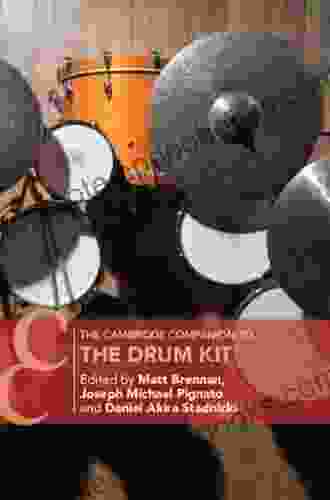Hans Folz and Print Culture in Late Medieval Germany: Unveiling a Literary Luminary

In the annals of German literature, the name Hans Folz shines as a literary luminary who left an indomitable mark on the literary landscape of late medieval Germany. His prolific output, spanning diverse genres, and his pivotal role in the development of print culture during this era have rendered him a figure of paramount importance. This article delves into the fascinating life, literary contributions, and profound influence of Hans Folz, shedding light on his pivotal role in the cultural tapestry of his time.
Early Life and Apprenticeship
Hans Folz was born circa 1435 in Worms, a thriving commercial center on the Rhine River. His early life remains shrouded in obscurity, but it is believed that he served an apprenticeship as a barber-surgeon, a common profession in the late Middle Ages. During his apprenticeship, Folz gained valuable skills in writing and rhetoric, which would later serve him well in his literary pursuits.
5 out of 5
| Language | : | English |
| File size | : | 10063 KB |
| Print length | : | 320 pages |
| Lending | : | Enabled |
Emergence as a Playwright
Folz's literary career took flight in the 1470s when he began composing plays for the annual carnival festivities in Nuremberg, a bustling city renowned for its cultural vitality. His plays, characterized by their witty dialogue, vivid characters, and social commentary, quickly gained popularity and established Folz as a master playwright.
One of his most celebrated plays is "Reineke Fuchs," a satirical retelling of the classic beast epic. Folz's adaptation, with its clever use of animal characters to critique human folly, became highly influential and was widely performed throughout Germany.
Master of Carnival Plays
Folz's reputation as a master of carnival plays grew with each successive year. He penned numerous farcical comedies and morality plays that were eagerly anticipated by the carnival crowds. His plays addressed contemporary issues, lampooned societal norms, and provided a cathartic release for the populace.
Through his carnival plays, Folz played a significant role in shaping the comedic traditions of German theater. His works influenced subsequent generations of playwrights and contributed to the development of the popular Hans Sachs Fastnachtspiele.
Print Culture Pioneer
Hans Folz's literary influence extended far beyond the stage. He recognized the transformative power of print and became one of the earliest pioneers of print culture in Germany. In 1479, he collaborated with the renowned printer Anton Koberger to publish a collection of his plays, marking the first time a German playwright's works were disseminated in print.
Folz's printed plays reached a much wider audience than his live performances, solidifying his status as a literary figure of national significance. His plays became widely read and helped to standardize the German language, contributing to the cultural unity of the German-speaking world.
Literary Legacy and Influence
Hans Folz left an enduring legacy in German literature. His carnival plays, with their biting satire and social commentary, set a new standard for the genre. As a print culture pioneer, he paved the way for the mass distribution of literature, making it accessible to a broader public.
Folz's works influenced countless later writers, including Hans Sachs, Sebastian Brant, and Martin Luther. His impact on German theater and print culture cannot be overstated. He is rightfully hailed as one of the most significant literary figures of late medieval Germany.
Unveiling the Life and Works of Hans Folz
Hans Folz's life and work offer a fascinating window into the cultural landscape of late medieval Germany. Through his carnival plays, satirical writings, and pioneering role in print culture, he left an indelible mark on the German literary tradition.
This article has explored the major facets of Folz's career, highlighting his literary contributions and the enduring impact of his work. By unveiling the life and legacy of Hans Folz, we gain a deeper understanding of the vibrant and complex era in which he lived and the profound influence he had on German literature and culture.
5 out of 5
| Language | : | English |
| File size | : | 10063 KB |
| Print length | : | 320 pages |
| Lending | : | Enabled |
Do you want to contribute by writing guest posts on this blog?
Please contact us and send us a resume of previous articles that you have written.
 Book
Book Novel
Novel Page
Page Chapter
Chapter Text
Text Story
Story Genre
Genre Reader
Reader Library
Library Paperback
Paperback E-book
E-book Magazine
Magazine Newspaper
Newspaper Paragraph
Paragraph Sentence
Sentence Bookmark
Bookmark Shelf
Shelf Glossary
Glossary Bibliography
Bibliography Foreword
Foreword Preface
Preface Synopsis
Synopsis Annotation
Annotation Footnote
Footnote Manuscript
Manuscript Scroll
Scroll Codex
Codex Tome
Tome Bestseller
Bestseller Classics
Classics Library card
Library card Narrative
Narrative Biography
Biography Autobiography
Autobiography Memoir
Memoir Reference
Reference Encyclopedia
Encyclopedia G N Devy
G N Devy Carolyn Jefferson Jenkins
Carolyn Jefferson Jenkins Michelle Dare
Michelle Dare Carter Dreyfuss
Carter Dreyfuss Casey L Bond
Casey L Bond Mary Ann Cappiello
Mary Ann Cappiello Caroline Heldman
Caroline Heldman Charles Hallisey
Charles Hallisey Walter Mengler
Walter Mengler Charles Veley
Charles Veley Champion Muthle
Champion Muthle Charles H Parker
Charles H Parker Cedric De Coning
Cedric De Coning Charles Brockden Brown
Charles Brockden Brown Jennifer Gomes
Jennifer Gomes Martha Kaufeldt
Martha Kaufeldt Charles Pidgeon
Charles Pidgeon Nathan George
Nathan George Michael Perelman
Michael Perelman Charity Freeland
Charity Freeland
Light bulbAdvertise smarter! Our strategic ad space ensures maximum exposure. Reserve your spot today!
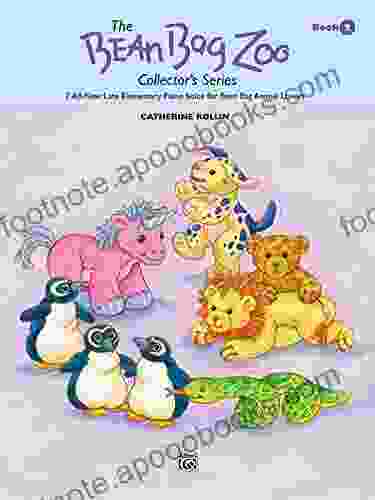
 Percy Bysshe ShelleyStep into the Enchanting Bean Bag Zoo Collector: Where Animals Come to Life...
Percy Bysshe ShelleyStep into the Enchanting Bean Bag Zoo Collector: Where Animals Come to Life...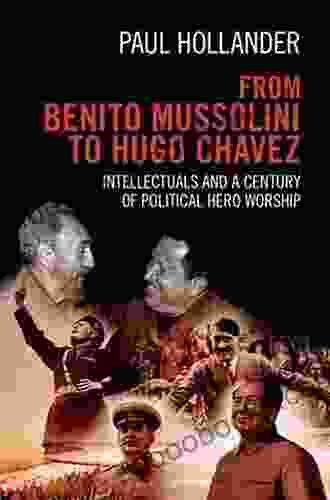
 Colin FosterIntellectuals and a Century of Political Hero Worship: Unveiling the Perils...
Colin FosterIntellectuals and a Century of Political Hero Worship: Unveiling the Perils... Bret MitchellFollow ·13.8k
Bret MitchellFollow ·13.8k Giovanni MitchellFollow ·3.9k
Giovanni MitchellFollow ·3.9k Holden BellFollow ·17.3k
Holden BellFollow ·17.3k Christian BarnesFollow ·12.7k
Christian BarnesFollow ·12.7k Brandon CoxFollow ·8k
Brandon CoxFollow ·8k Andrew BellFollow ·13k
Andrew BellFollow ·13k Melvin BlairFollow ·6.4k
Melvin BlairFollow ·6.4k Emilio CoxFollow ·3.9k
Emilio CoxFollow ·3.9k

 Angelo Ward
Angelo WardThe Original Home School: A Journey of Love, Learning,...
In the annals of...

 Heath Powell
Heath PowellAfrican American Education in Slavery and Freedom: The...
The history of African...
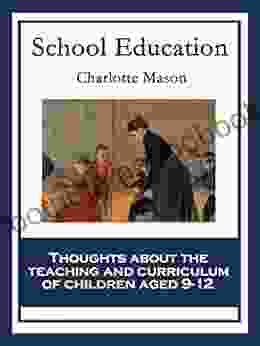
 Jamal Blair
Jamal BlairEmbrace the Wonder and Simplicity of Charlotte Mason...
Discover the...
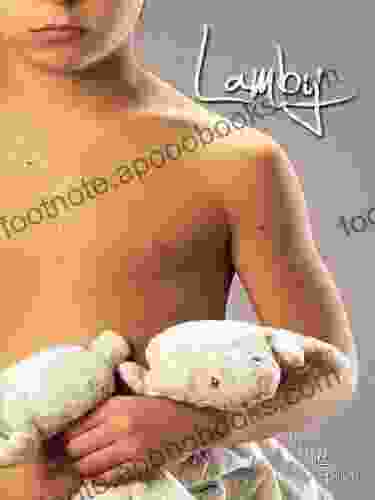
 Cason Cox
Cason CoxUnveiling the Truth: A Mother's Courageous Journey to...
A Mother's Love Unbound: The Power of...
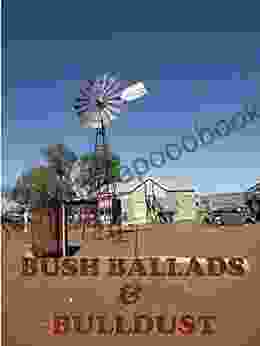
 Jamal Blair
Jamal BlairOver 100 Original Aussie Bush Ballads: A Journey Through...
Embark on a literary odyssey into the...
5 out of 5
| Language | : | English |
| File size | : | 10063 KB |
| Print length | : | 320 pages |
| Lending | : | Enabled |





